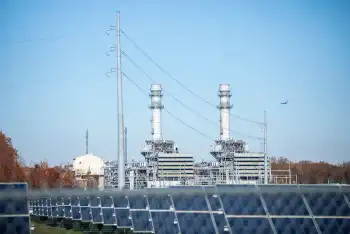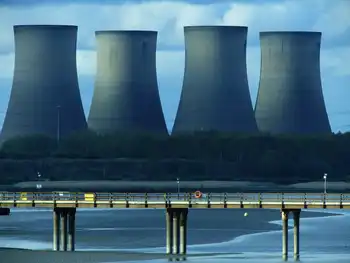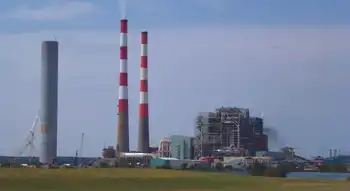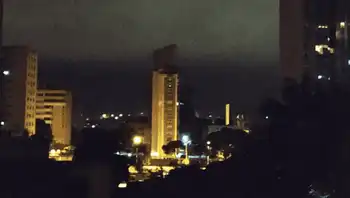AECL suppliers concerned about future
BURLINGTON, ONTARIO - Some Atomic Energy of Canada Ltd. suppliers are worried about their future after news broke that Bruce Power Corp., the preferred bidder to buy Canada's nuclear power agency, walked away from negotiations with the federal government.
The government has spent almost two years trying to sell the commercial Candu nuclear reactor division of AECL, which builds and maintains the reactors.
Bruce Power's chief executive told staff that the firm, the only company still in the running, had dropped out of the bidding process.
Chris Hughes, president of Laker Energy Products, whose machinists make small metal parts on high precision lathes for Candu reactors, said AECL hasn't lined up any new work while the government tries to sell that division and that is hurting his business.
Two years ago, his Burlington, Ont.-based company employed 24 people and operated seven days a week. But with AECL getting distracted with the asset sale and not getting any new contracts, Lake Energy has shrunk to 10 people.
Hughes said this is despite the fact that countries such as Argentina want to hire AECL.
"[Argentina] fully expected to have a signed contract nine months ago for the refurbishment of their reactor, but AECL is unwilling to do so," Hughes said.
Hughes also said that Argentina was interested in buying two new Candu reactors in 2009, but that hasn't happened either.
"We've gone from being the only technology on the list to not even being on the list," he said.
If all of the work with Argentina had gone ahead, Hughes said, Lake Energy could have expanded to 70 employees.
The union representing engineers and scientists at AECL's Mississauga headquarters says the federal government, not wanting to have too many liabilities on the books, imposed strict limits on how much business the Crown corporation can take on while it's in the process of being sold.
That has hurt AECL's suppliers and made it less lucrative to potential buyers, union vice-president Michael Ivanco said.
"We're not allowed to bid on any projects in excess of $7.5 million, and all the bidders have said, 'Well, you're only worth whatever business is on your books. There's no business on your books, so we're not going to bid anything'. " said Ivanco of the Society of Professional Engineers and Associates. "So it's catch 22."
Neil Alexander, president of the Organization of CANDU Industries, which represents 164 companies that supply many of the parts for Candu reactors, said customers will only wait for so long.
"As days go by, other countries are making the decision about their nuclear futures, so we are missing opportunities minute by minute while we're waiting for this issue to be resolved," he said.
AECL refused multiple interview requests and referred all questions about its sale to the federal government. Natural Resources Minister Christian Paradis would only say Monday that the restructuring of AECL is ongoing.
"When we'll have new outcomes in the process, I will be happy to comment on this, but in the process ongoing, I won't comment any further."
Paradis did not say how much longer that process would take.
In 2009, the government announced it would put parts of AECL on the block after a National Bank study it commissioned found there was "significant private sector interest" in a stand-alone CANDU reactor business.
Related News

Pennsylvania residents could see electricity prices rise as much as 50 percent this winter
PITTSBURG - Energy costs for electric customers are going up by as much as 50% across Pennsylvania next week, the latest manifestation of across-the-board energy price increases impacting gasoline, heating oil, propane, and natural gas.
Eight Pennsylvania electric utilities are set to increase their energy prices on Dec. 1, reflecting the higher cost to produce electricity. Peco Energy, which serves Philadelphia and its suburbs, will boost its energy charge by 6.4% on Dec. 1, from 6.6 cents per kilowatt hour to about 7 cents per kWh. Energy charges account for about half of a residential bill.
PPL Electric Utilities, the Allentown company…




